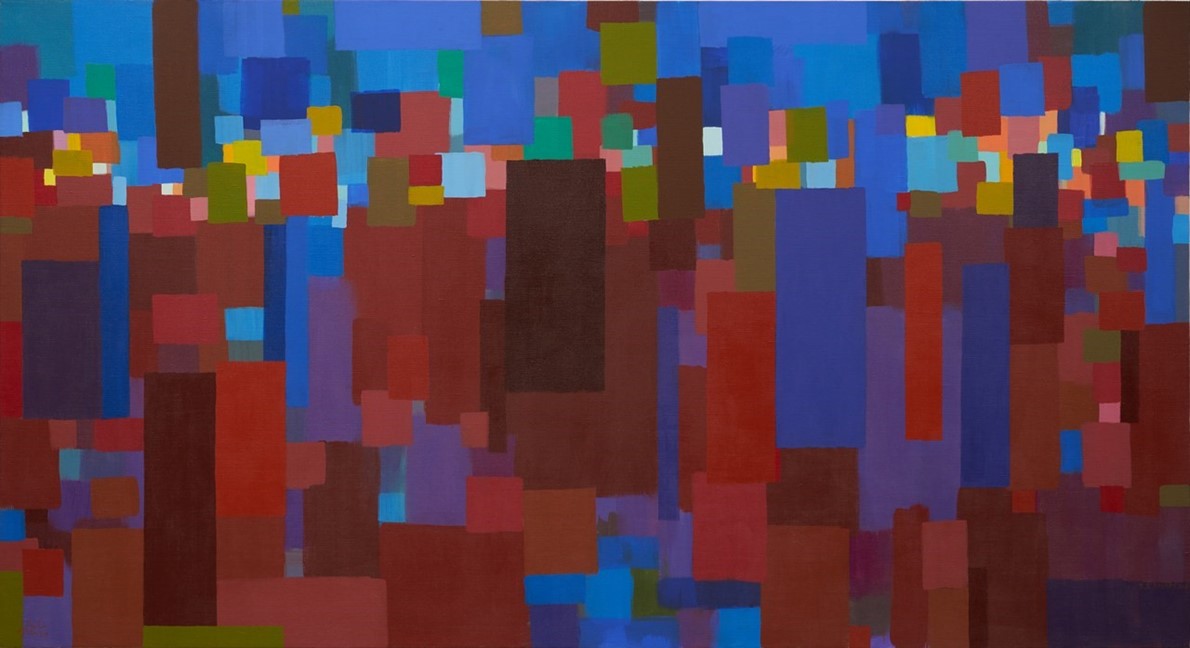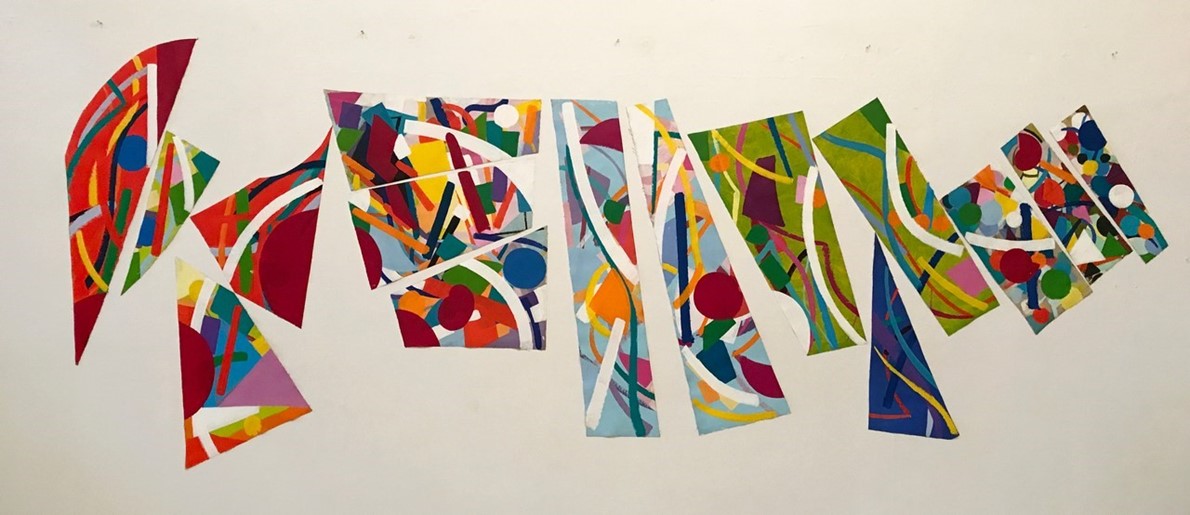The first
American retrospective of Samia Halaby, regarded as one of the most important
living Palestinian artists, was abruptly canceled by officials at Indiana
University in recent weeks.
اضافة اعلان
Dozens of
her vibrant and abstract paintings were already at the school when Halaby, 87,
said she received a call from the director of the university’s Eskenazi Museum
of Art. The director informed her that employees had shared concern about her
social media posts on Israel’s war on Gaza, where she had expressed support for
Palestinian causes and outrage at the violence in the Middle East, comparing
the Israeli bombardment to genocide.
Halaby later
received a two-sentence note from the museum director, David Brenneman,
officially canceling the show in Bloomington without a clear explanation.
“I write to
formally notify you that the Eskenazi Museum of Art will not host its planned
exhibition of your work,” Brenneman wrote in the Dec. 20 letter, which was
reviewed by The New York Times.
A few months
earlier, Brenneman had applauded the artist’s “dynamic and innovative approach
to art-making” in promotional materials, where he said the exhibition would
demonstrate how universities “value artistic experimentation.”
The show’s
cancellation is the latest example of the heavy scrutiny that artists and
academics have faced since the war began in October. Magazine editors have been
fired, artists have seen their work censored and university presidents have
resigned under pressure.
“It is
clearly my freedom of expression that is under question here,” said Halaby, who
earned a master’s degree at Indiana University and later taught students there.
She said concerns about her exhibition had been raised by a museum employee.
The
retrospective, which was to open on Feb. 10, had taken more than three years to
organize in partnership with Michigan State University’s Broad Art Museum;
agreements were already signed with grant-making foundations and museums that
lent artworks to Indiana University from around the country. Halaby was also
preparing to unveil a new digital artwork for the exhibition, in addition to
previously unseen works, including a 1989 painting called “Worldwide
Intifadah.”
Steven
Bridges, director of the Broad Art Museum, said his institution was still
planning to host the exhibition this year.
 In an image provided by Samia Halaby shows,“Our
Beautiful Land of Palestine Stolen in the Night of History” (2016). Halaby, an
87-year-old artist, has been outspoken in her support of Palestinians during
the Israel-Gaza war.
In an image provided by Samia Halaby shows,“Our
Beautiful Land of Palestine Stolen in the Night of History” (2016). Halaby, an
87-year-old artist, has been outspoken in her support of Palestinians during
the Israel-Gaza war.
A
spokesperson for Indiana University, Mark Bode, said in a statement Wednesday
that “academic leaders and campus officials canceled the exhibit due to
concerns about guaranteeing the integrity of the exhibit for its duration.”
In November,
US Rep. Jim Banks, R-Ind., sent a letter to the university saying it could lose
federal funding if administrators condoned antisemitism on campus. In December,
the university suspended a tenured political science professor after the
student-led Palestine Solidarity Committee that he advises hosted an
unauthorized event.
Halaby
became a celebrated artist by combining the approaches of abstract expressionism
and Russian constructivism with the social activism of Mexican muralists in the
early 20th century.
She
described her work as following the traditions of Palestinian “liberation art”
and remained politically outspoken throughout her career. She made history in
1972 as the first woman to hold the title of associate professor at the Yale
School of Art. She was also at the forefront of digital art, teaching herself
how to write computer programs in the 1980s.
Reviewing
her work in a 2006 group exhibition on Palestinian artists, New York Times
critic Holland Cotter said one of Halaby’s wall pieces looked “like a cross
between a floral bouquet and camouflage material.”
Her
paintings now hang in the permanent collections at the Guggenheim Museum in New
York, the National Gallery of Art in Washington, and the Art Institute of
Chicago, although most of her exhibition history is with cultural institutions
in Europe and the Middle East. She recently had a retrospective featuring more
than 200 artworks at the Sharjah Art Museum in the United Arab Emirates.
 In an image provided by Samia Halaby shows, “Worldwide
Intifadah” (1989). Halaby, an 87-year-old artist, has been outspoken in her
support of Palestinians during the Israel-Gaza war.
In an image provided by Samia Halaby shows, “Worldwide
Intifadah” (1989). Halaby, an 87-year-old artist, has been outspoken in her
support of Palestinians during the Israel-Gaza war.
“The
political situation now is extremely tense, and such an exhibition could have
brought people together with the nuance of Samia’s work,” Nadia Radwan, an art
historian who specializes in artists from the Middle East, said about the
canceled show at Indiana University. “She belongs to the Palestinian diaspora,
but she is also a very American abstract artist. Her recognition came late in
life.”
An online
petition demanding that Indiana University reinstate the exhibition has
received thousands of signatures. Madison Gordon, the artist’s grandniece and
trustee of her foundation, said in the petition that Halaby’s appeals to the
university’s president, Pamela Whitten, went unanswered.
“The
university is canceling the show to distance itself from the cause of
Palestinian freedom,” Gordon wrote. “For 50 years, Samia has been an outspoken
and principled activist for the dignity, freedom, and self-determination of the
Palestinian people.”
Halaby said
she was disappointed by the university’s decision. She was raised in the
Midwest and believed that having her first major American retrospective there
would bring her career full circle.
“I thought I
had found a little bit of something I could call my home in Indiana,” Halaby
said, “and it turned out to be totally false.”
Read more Culture and Arts
Jordan News





